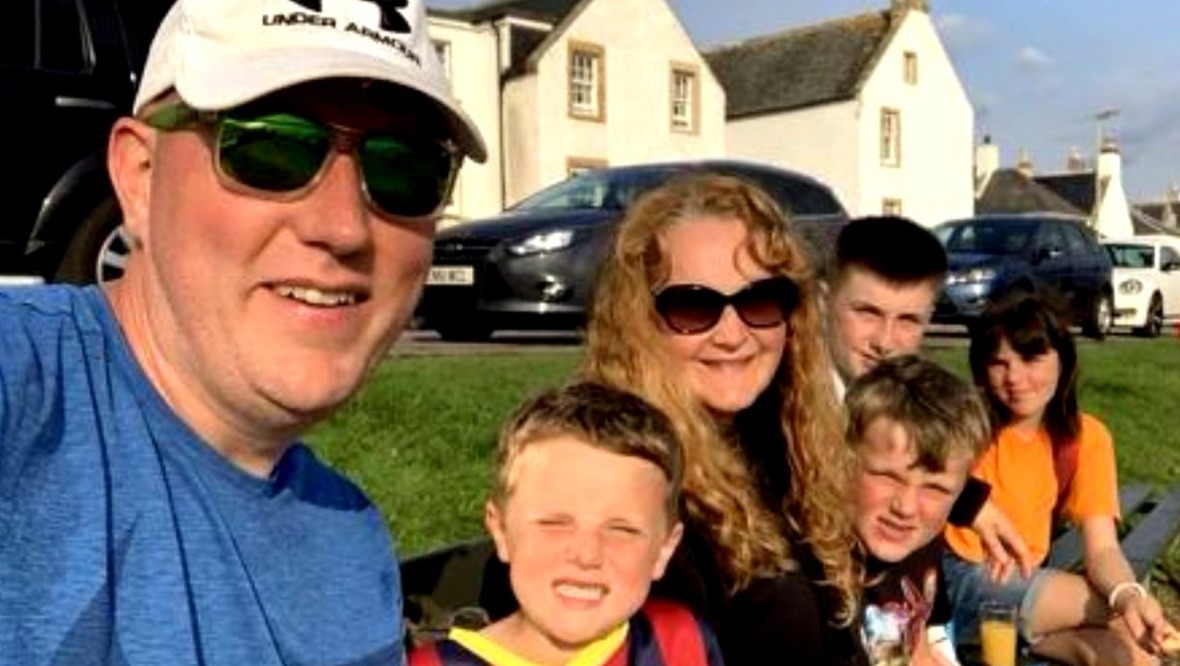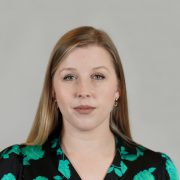Coronavirus has been dominating the headlines for a year – but behind the grim death statistics and hospital admissions, a related illness has been quietly wreaking havoc on the lives of thousands of Scots.
Long Covid, or post-covid syndrome, has been described by some as the “pandemic behind the pandemic”.
Research is in its infancy and there is no clear treatment or cure.
The post-viral condition affects people who fell ill with coronavirus, but did not make a full recovery within three months.
Symptoms vary, but some of the most common complaints are extreme fatigue, breathlessness and “brain fog”, such as an inability to focus or remember certain things.
Research is being commissioned and new guidelines have been issued to help GPs support patients, but campaigners are keen to see more holistic support put in place.
For a special report on Scotland Tonight at 7.30pm on Thursday, STV News has been hearing from patients suffering from this insidious and life-changing illness.
Maria: ‘I couldn’t get out of bed’
Maria Timoney, a mum-of-four from Airdrie, is a palliative care nurse.
Her life took a drastic turn when she fell ill with coronavirus in June last year – her chest pains were so extreme that she was admitted to hospital for a few days.
After she was discharged, her symptoms didn’t shift. Eight months later, she’s still struggling with the after-effects of the virus – which sometimes present themselves in unusual and unpredictable ways.
She said: “I thought I was coming home for a few days of rest and then probably going back to work, but after about a week or so I actually felt as if I was worse, the fatigue was overwhelming, I couldn’t get out of bed some days, and if I did get up my legs were shaky, they were really jelly-like.
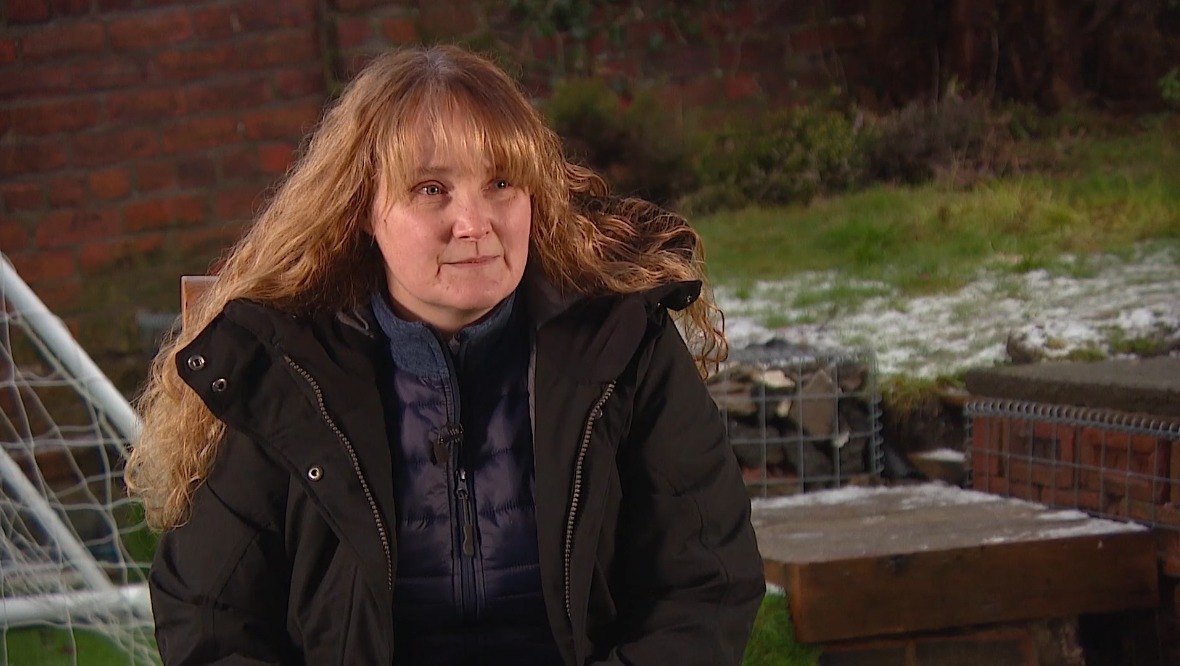 STV News
STV News“The chest pain was still there and that was really concerning me, and I was quite a bit breathless, just on minimal exertion.
“I got referred to respiratory, I got referred to cardiology, and everything came back okay – the GP said ‘you’ve just got to ride this out and see how long it takes’.”
Household tasks such as cooking and cleaning now need to be shared out among the family, and Maria’s symptoms vary from day to day.
“Running up and down the stairs, I used to do that loads every day, now I’m really aware that if I go up the stairs I’m going to be breathless by the time I get to the top of them,” she said.
“I really am desperate to get back to work, I know the district nursing team that I worked with is really busy, I wish I was there, I do feel really guilty.
“For my own mental health I think it would be great but I need to be ready to be able to cope with it as well.”
Wendy: ‘My daughter wants fun mummy back’
Wendy Macdonald, 42, fell ill just before the first national lockdown was imposed last March.
The mum-of-two ran children’s musical workshops and classes but the lasting effects of the virus have forced her to pause the business for now.
Long Covid has had a major physical and emotional impact on her.
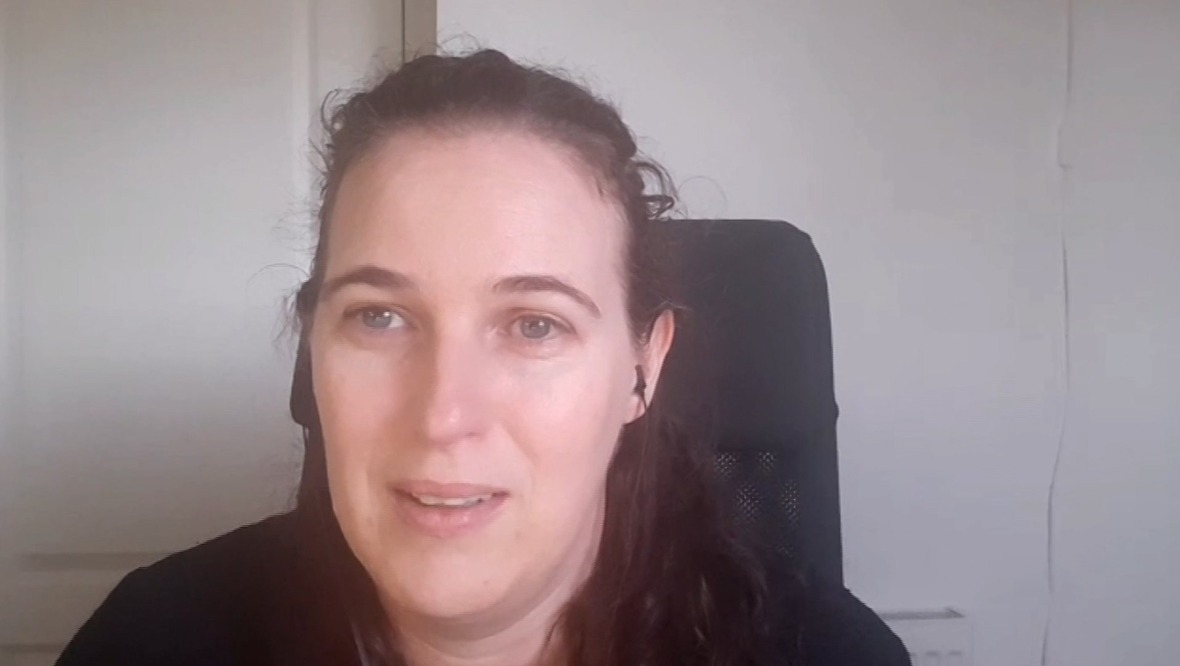 STV News
STV NewsWendy, from Bishopton in Renfrewshire, said: “My daughter was in tears the other day, saying ‘I miss my real mum, I want fun mummy back, that could take us places and do stuff’.
“That was really hard, because I know they just want me to be back to normal… and I can’t magic myself back.
“Before I was pretty active and busy, and now I have to pace myself to do everything – anything I do I have to plan out, when am I going to do it, and then when am I going to be able to rest afterwards.
“It’s a hard thing to explain, the exhaustion – it’s not like a ‘oh I didn’t get enough sleep last night, I’m a bit tired’, it’s more like you’ve gone out and done something really physical and your whole body is just exhausted.
“It’s stopping me from being able to live a normal life.”
Ruth: ‘It takes hours to get going’
Ruth Moore from East Kilbride is a part-time carer, used to having a busy family and social life.
Before Covid-19 restrictions came in, the 49-year-old was a regular at karate classes, and recently earned her black belt.
In October, her whole family, including her husband, daughters and elderly mum, was struck down by coronavirus in what she describes as a “domino effect”.
Ruth spent five nights in hospital but unlike the rest of her family, she didn’t feel like she was recovering once she was discharged.
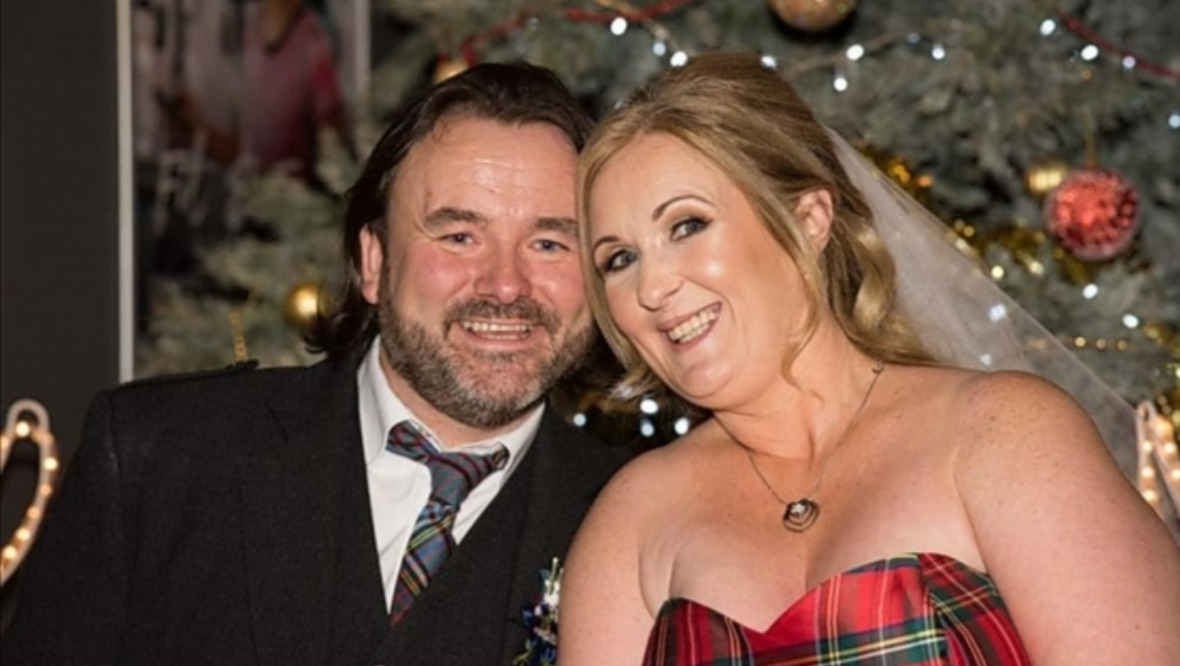 STV News
STV NewsShe told STV News: “I was a normal, healthy person – not on any medication, and now I’m on steroids, inhalers, and I just feel, ‘am I ever going to get back to the way I was?’. I don’t know the answer to that – nobody knows the answer to that.
“I’m lucky if I can get up before lunchtime, and it takes me a few hours to actually get going – and by getting going I mean getting dressed, maybe brushing my hair and brushing my teeth.
“There are days that I’ve had that I feel a bit down and a wee bit dark but then, I’m alive.”
Ruth is keen to return to work but she is waiting until she can build up her strength.
Callum: ‘Half the man I used to be’
Callum O’Dwyer, 29, from Aberdeen, fell ill on March 23 last year – the same day as lockdown was announced.
He had hoped he would recover after resting up over a few days, but ten months on, he’s still living with Long Covid.
He has had to move back in with his parents so they can help look after him, and has to choose between household tasks like loading the dishwasher or walking the dog so he doesn’t exhaust himself for the rest of the day.
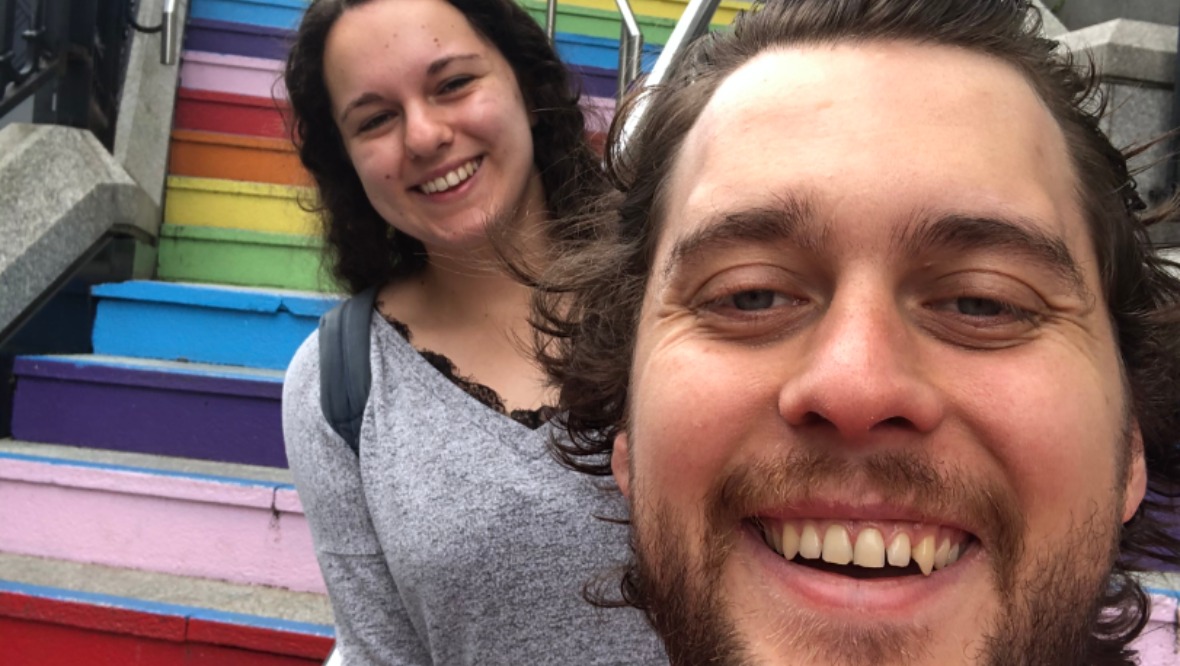 STV News
STV News“I’m half the man I used to be,” he says. “There hasn’t been a day when I haven’t spent more than at least two – sometimes up to six – hours resting in bed.
“Not long ago, I would have been running 10ks, going to the gym, leading an active, busy lifestyle – but at one point, I had a shower and had to lie down for four hours. It feels like I’m three, four times my actual age.”
Callum says that a more holistic approach is needed to tackle Long Covid care. He wants to see specialist clinics set up to support those living with the illness.
So what is being done?
Glasgow-based GP Dr Sandesh Gulhane admits that there is not a great deal doctors can do to treat Long Covid at this stage.
He describes offering empathy to patients as the “best thing I’ve got in my armoury”.
Dr Gulhane said: “There is no test, and there is no cure – that’s not really doing enough, I wish I could do something more.
“This is all a brand new thing that’s evolving. Long Covid is a real condition, it affects people, it destroys lives and we need to think more about it and try to reach out to get patients the help they need.”
Professor Tom Evans of the University of Glasgow sits on the Scottish Government’s Covid-19 advisory group.
He was involved in drafting guidelines for diagnosing and supporting patients with Long Covid – but he admits that research is still in its early stage.
Prof Evans said: “In Scotland, the Chief Science Officer has sponsored some excellent research projects which will take place in the next year or so, and these will begin to give us some answers – but it will take time, and that’s a difficult one for patients who are waiting for something that’s going to give them real benefit.”
He says that all the research will help inform the best way to treat the condition.
He added: “Time will tell how we can best manage this and whether or not a dedicated service is needed, and the sort of services you might want to access in remote and rural parts of Scotland may be quite different to those in the more urban and central belt areas.”
Lesley MacNiven is part of campaign group Long Covid Scotland and wants people with the condition to contact them via their Facebook page for support
She told STV News: “We’ve still got this binary where people thought at ten days, you either ended up in hospital or got better – but there’s this invisible group of people who didn’t recover; they survived, but they didn’t recover.
“We also know that we need to do something quickly – so we’re not looking for perfection, we are keen to be guinea pigs, we’re happy to be involved in any kind of studies.”
A Scottish Government spokesperson said: “We take this issue very seriously, and recognise the impact Long Covid is having on the physical and mental wellbeing of people in Scotland.
“NHS Scotland is delivering care tailored to the individual needs of people experiencing the long-term effects of Covid-19.
“Our ambition is for people to have access to the support they need for assessment, diagnosis, care and rehabilitation in a setting that is as close to their home as possible.
“We are working to enhance and better co-ordinate existing pathways from primary, community care and third sector services, to provide the multidisciplinary and person-centred support that people will require.
“We are also working closely with Chest, Heart and Stroke Scotland to explore how partnership working between third-sector services and our NHS can deliver person centred care for people experiencing Long Covid.
“The Chief Scientist Office has funded nine extensive research projects on Long Covid through £2.5m of funding, and this will increase clinical knowledge on the long-term effects of Covid-19.
“This is in addition to the £5m we recently awarded to 15 Scottish research institutions to better understand the effects of infection and inform treatment and management of the virus.
“We will continue to engage with people who have Long Covid, NHS boards and the wider clinical community to deepen our understanding of the symptoms and impact of Long Covid to help us continue to deliver the support people need.”
In the meantime, the charity Chest Heart & Stroke Scotland has set up a helpline for people dealing with Long Covid.
Chief executive Jane-Claire Judson said: “People living with long covid in Scotland need as much support as possible right now. Support is available now through our Long Covid Advice Line and we are encouraging people to call 0808 801 0899 – please don’t suffer alone.
“There needs to be better coordination of services to help people with Long Covid get the wraparound care they need. Everyone, including people affected by Long Covid, are working with the Scottish Government to make sure that support services are available as soon as possible.”

